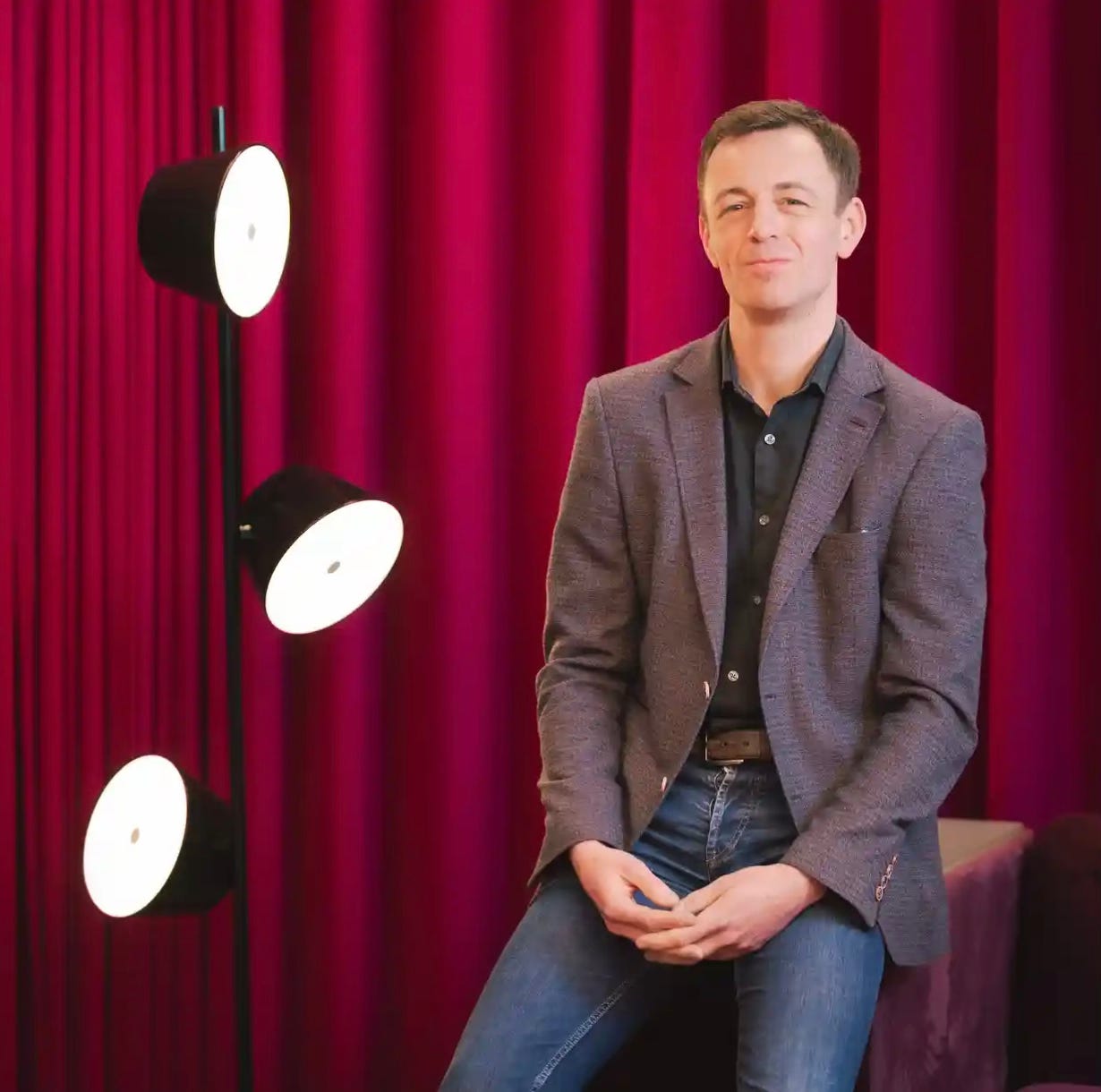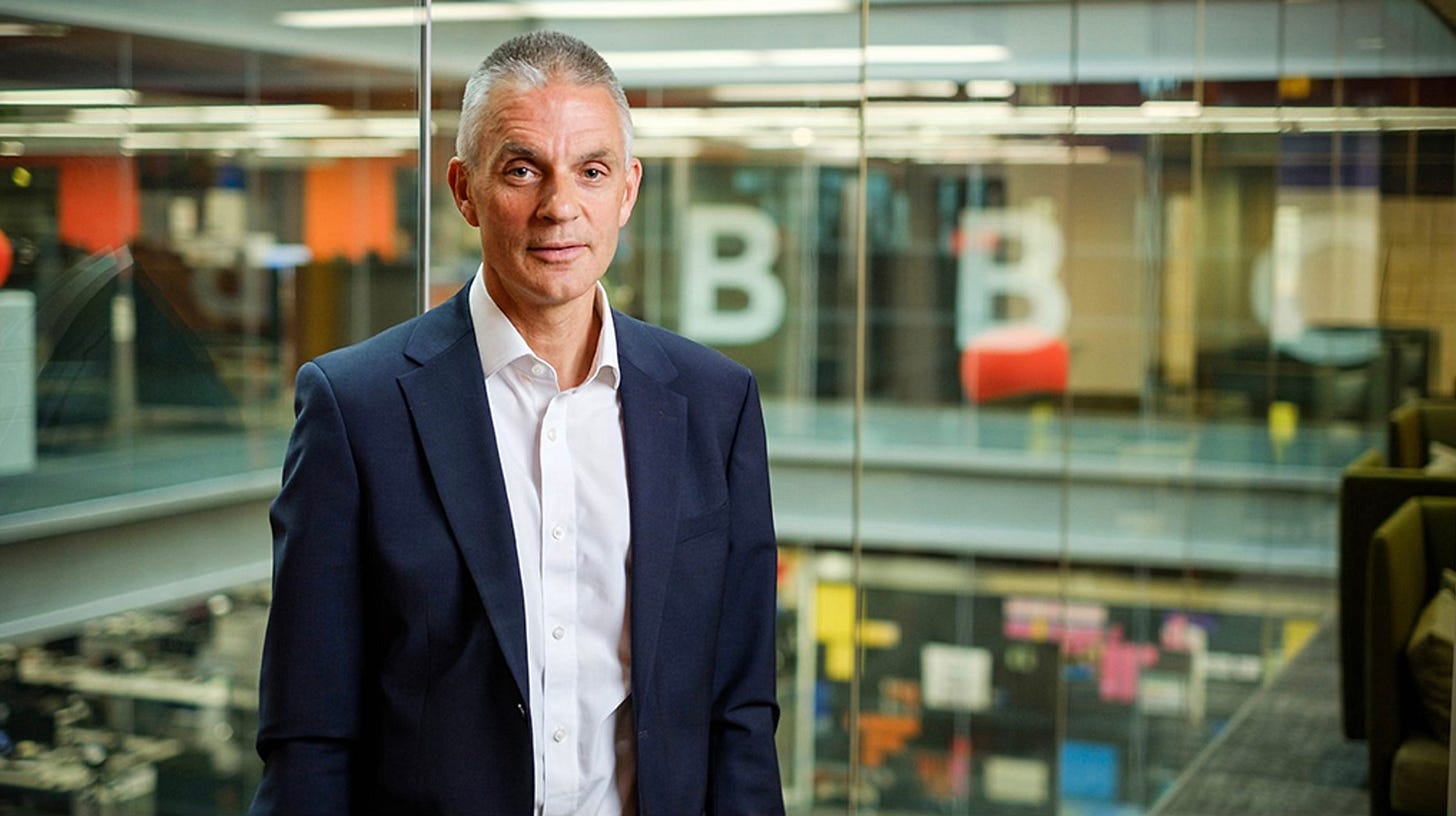So, did you notice a rather unusual opening to last week’s BBC radio programme Free Thinking?
The presenter, Matthew Sweet, has always been great at inviting us in to his studio, however esoteric the subject matter before the microphone. But on this particular occasion, when introducing us to a one-hour discussion that was going to encompass the philosophy of Thomas Hobbes, the lyrics of Abba’s 1974 Eurovision winner, Waterloo, and, um, margarine, he was clearly being extra solicitous. “Hello”, he began. “Really, I mean it: Hello!” He proceeded to introduce a playful montage of clips taken from just a few of the previous 3,188 shows. “We like ideas”, he explained. “We don’t like epistemic insouciance, otherwise known as bullshit… We like intellectuals … And I want you to know that at Friday nights at 9, you’ll always find some here.”
Why the manifesto. Why the charm offensive?
Well, the programme was appearing in a brand new slot. So, it turns out, have lots of others we’re familiar with – Radio 3’s Record Review and Composer of the Week, Radio 4’s Desert Island Discs and The Food Programme to name but a few.
It was all announced back in February and March, and represents the latest round in scheduling changes of the kind that periodically mark – and drive - the evolution of the ‘radio experience’ for us listeners. This most recent adjustment has been particularly significant because it also represents the first reboot to be shaped in part by Radio 3’s new-ish head, Sam Jackson – someone who’s spent his career up till now working in the commercial sector.
[Sam Jackson, Controller, BBC Radio 3. Photograph: Alecsandra Raluca Drăgoi/The Guardian]
Controllers like Jackson and his Radio 4 counterpart, Mohit Bakaya, call it ‘shuffling the pack’. It’s a necessary thing in the broadcasting world, not least because listeners’ habits and tastes do evolve. Programmes that have proven themselves to be a hit get bigger and juicier slots. Those that have run their course are quietly ‘disappeared’. Warhorses are rested – or perhaps perked-up a bit by a new team of presenters. Budgets are being weighed-up, too: the BBC’s been squeezed horribly by years of ungenerous licence-fee settlements; those running its radio empire are required to bear their share of the pain.
But last Friday’s bullshit-free discussion of Hobbes, Abba and margarine marked something else. Free Thinking has always been a Radio 3 programme. And here it was, all of a sudden, popping-up not just earlier in the evening but on the old Home Service, Radio 4. The poetry series The Verb has made the same cross-channel journey. A rather different route has been followed by Friday Night Is Music Night, which ran for decades on the Light Programme and its successor Radio 2. It now appears on that successor to the venerable Third Programme, Radio 3.
Such wholesale transfers of long-running programmes from one network to the other represent an audacious manoeuvre. And they can sometimes cause big upsets. Back in the mid-1960s, as BBC Radio grappled with adjusting to the television age, there was a flurry of swaps, all designed to make each national radio station more distinctive and more predictable. Henceforth, they were to be predominantly speech or predominantlymusic, rather than attempting to be both. So, the Third Programme gave the Home Service its gardening programme; Home handed Record Review over to the Third, and so on. In the early-1970s, dramas that were judged too experimental or ‘difficult’ for the Radio 4 listener were broadcast, instead, on Radio 3. Critics both inside the BBC and without – and there were many at the time – thought they could detect a loss of nerve in Broadcasting House, a giving-in to the American pattern of ‘generic’ radio.
Several other grown-up series we now associate with a particular network spent their youth and early adulthood elsewhere. And not all the traffic has been from Radio 3 to Radio 4. Woman’s Hour, The Archers, and Any Questions? were all long-time residents of the Light Programme before jumping ship. The fact they now seem utterly at home on Radio 4 is a measure of how, when it comes to listening, familiarity breeds contentment. History tells us there’s a reasonable chance that, in time, even Friday Night is Music Night will be regarded as a ‘Radio 3 programme.’ Though that, of course, raises the question of what, by then, we will mean by the term ‘Radio 3 programme.’
Scheduling changes – not just the most recent round, but those that have been unveiled over the past decade or so - have thrown up several other features worth keeping an eye on. One notable trend: the use of a select number of key presenters who are versatile enough – and, presumably, popular enough with audiences - to front a wide variety of series. Think Lucy Worsley, Mary Beard, Michael Mosley. Another trend: programmes arranged under umbrella ‘titles’ – Radio 3’s ‘After Dark’, Radio 4’s branded documentary and comedy slots. The idea is that a schedule packed with hundreds of individual items becomes just that little bit easier to navigate – and that this most ephemeral of media can more easily etch its regular but sometimes rather-too-subtle rhythms into our own domestic lives. If it works, the different times of the day – breakfast, morning, lunchtime, the night-time hours– will be accompanied by a comfortingly familiar soundtrack that seems, effortlessly, to match our moods and needs.
Despite all the talk of merely ‘shuffling the pack’, the impact of all these changes on the overall tone and feel of a network can be cumulative, even if hard to pin down or prove. In her recent Guardian profile of Sam Jackson, Charlotte Higgins pointed out that the transfer of series such as Free Thinking and The Verb was just one more step in ‘the decades-long edging of Radio 3 away from speech’. She also detected what was for her ‘a sense of middle-of-the-roadness, a lack of unpredictable spikiness’. That might well be the case, though we will need to give the changes a chance to prove themselves. As a reasonably long-term listener of Radio 3, I’d say the shift I’ve already detected – a shift which pre-dates Jackson’s arrival – is one from presenters who hand-down information about a piece of music to presenters who exude their own enjoyment of what’s being played. Given that enjoyment can be infectious, I think this is generally a Good Thing – though it’s also something that can be cloying if taken too far. As I say, hard to pin down or prove.
Perhaps, in the end, all this talk of network character or times of the day is utterly beside the point. For it’s not clear how long the dark arts of radio scheduling – or the individual identity of a network such as Radio 3 or Radio 4 - will really matter. Or, indeed, whether we should care about whether programmes such as Free Thinking or The Verb really ‘belong’ on the former Third Programme or the former Home Service.
Like many listeners, I didn’t catch last week’s discussion about Hobbes and Abba and margarine while it was going out live on Friday evening: I caught it two days later on BBC Sounds. Nothing new or surprising there. Off-line listening, like off-line viewing, has been a feature of ‘media consumption’ for decades: the arrival of the home VHS machine really is a distant memory. BBC Sounds may be a more recent thing, though there’s been something like it since the 1990s. It’s already becoming – though not yet is – the New Normal.
Even so, we need to be aware that the BBC’s now preparing us for a step-change in our relationship with radio. And it’s a change that might well be here sooner than we imagine.
[Tim Davie, BBC Director-General. Photograph: BBC]
In his recent speech on the Corporation’s future plans, the Director-General Tim Davie, said that “A BBC of the future will complete the journey from a broadcaster-controlled to a more audience-controlled future.” One aspect of this, he went on, is that through platforms such as BBC iPlayer and BBC Sounds we will, as viewers and listeners, “be able to move across the content seamlessly”. In other words, we will search for programmes we want, and we will barely notice whether they ‘belong’ to Radio 3 or Radio 4, the World Service, a local station or even the BBC’s vast programme back-catalogue.
It doesn’t sound too bad. But what then happens to the BBC’s most venerable national radio stations – what purpose they still serve beyond vague notions of “bringing people together” - is a question left largely unanswered. For now, at least.








Thanks for the heads up. Thought provoking. It is making me think too about how scheduled radio seems to remain important, globally maybe, in the era of podcasting, playlists and catchup options. Maybe an agegroup thing? Or a relationship with car culture and driving too?
Rich food for thought, David - how a live radio schedule and ‘brand’ accompanies, maybe even used to define our day. I used to arrange my time to catch certain shows on ABC Radio National - The Goons at midday Saturday, Alistair Cooke’s Letter from America as I chopped veg for dinner Sunday evening, Saturday morning’s esoteric guests on Extra. I’m curious how time shifting via podcasts and BBC Sounds etc will change our relationship with content. Just listening while out walking changes how I recall things, for instance. And it also alters the sense of audience connection - to a stronger parasocial bond with the host(s), perhaps, but a lesser sense of being part of a communal audience. More research needed!
And it’s great to see your reflections and analysis on here!